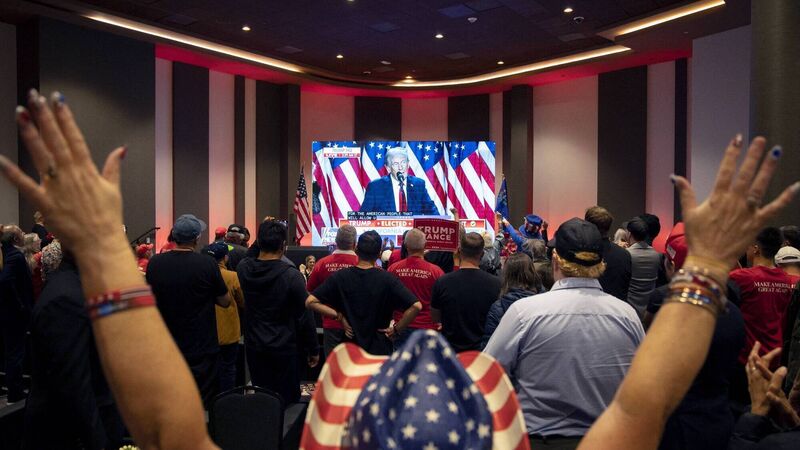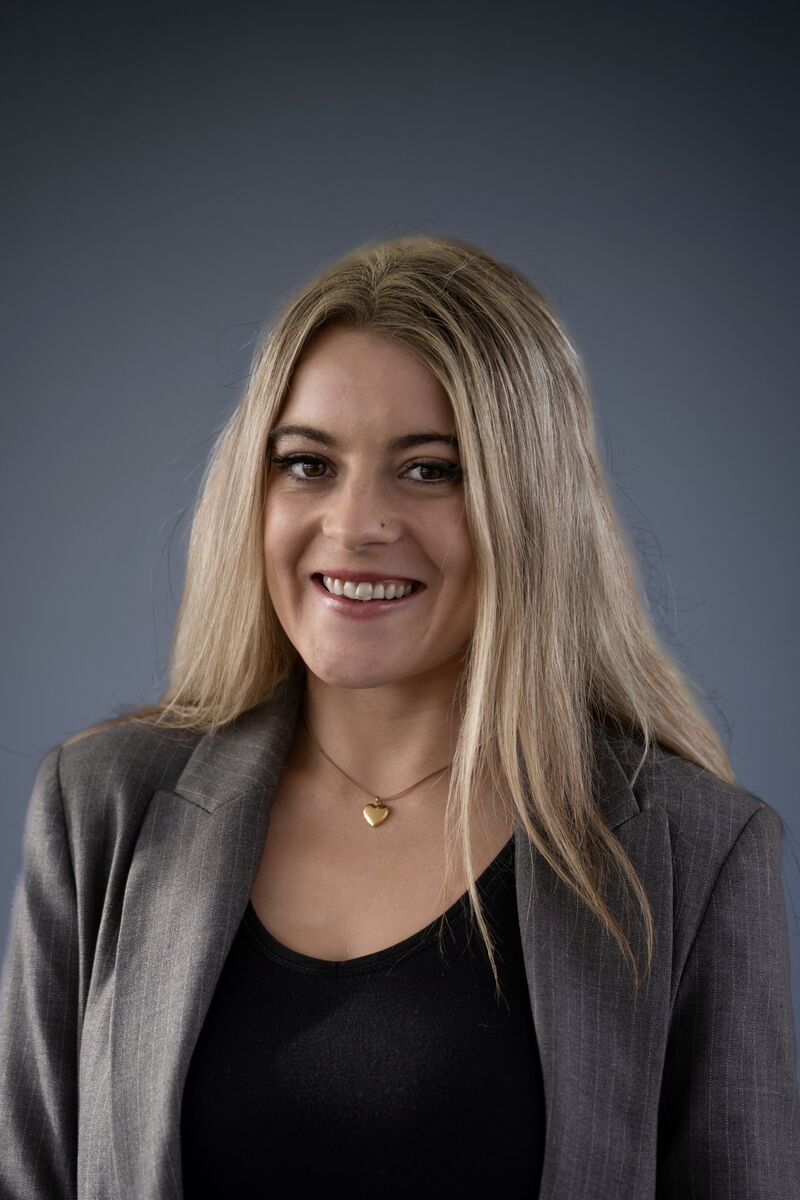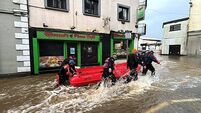US citizen in Cork's view: 'Most frightening part is not who won, but why they won'

Attendees cheer as a broadcast of former US President and Republican presidential candidate Donald Trum speaking at his Florida election party is shown on a screen at the Nevada GOP election watch party in Las Vegas, Nevada. Photo: RONDA CHURCHILL/AFP via Getty Images)
A sad day to be an American, and a frightening day to be a woman and a journalist in Ireland.
I was born in San Jose, California, and despite Santa Clara County voting over 70% for Joe Biden in the last elections and the fact that I haven’t lived there in 24 years, it still felt important to cast my mail-in ballot for Kamala Harris.
As the dread began to settle in the early hours of this morning, I accepted that the cautious optimism I had been feeling since Biden dropped out and Harris replaced him was more like a wilful ignorance — I was disappointed, but not surprised.
I have toyed with the idea of moving back to the States for most of my adult life, and those plans are likely to be on hold for the next four years. This is merely an inconvenience for me, but Donald Trump’s victory will have a very real impact on the lives of millions in the US.
I live and work in a country where, while a woman’s right to reproductive healthcare remains contentious, in the upcoming elections, statements like “everyone should have access to healthcare” and “guns are responsible for gun deaths” will not prove controversial.
The most frightening part of the American election comes not from who won it, but why they did, and what it says about the future.
It was not just white men who voted for Trump, nor was it just men at all, suggesting that being better than or having more than others is more desirable to oppressed groups than equality regardless of race, gender, sexuality, or nationality.
The ‘punch down’ logic that moves a white woman or black man to vote for someone who has openly and repeatedly called for their rights to be taken away in America is not a new concept.

In Ireland at the moment, it sees some teach their children to hurl abuse at asylum seekers and speak adoringly of the billionaires insisting that those are the people who have stolen their homes, school places, and GP appointments.
As a young woman and a journalist in Cork, it is impossible not to feel a shift here, in culture war rhetoric — clearly imported from the US — that dominates social media platforms, and in the way some people have become comfortable talking to others in a violent manner.
I have been accosted at a protest against asylum seekers, where I asked people present if they wanted to share their concerns, by the same people who write in the Facebook comment section of our articles that their side of the story is never represented.
By undermining faith in mainstream media, by spouting hate that stands in opposition to everything the Bible says while claiming to do so in the name of God, Trump positioned himself as the one source of truth.
The US election campaign, regardless of who was elected, posed worrying questions about life in the US and the tensions brewing there — how are people who voted for one candidate expected to get on with those who voted for another?
Nearly three quarters of Americans, clearly encompassing both sides of the debate, told exit polls that they thought democracy was under threat in the election — how can you sit in a Wednesday morning meeting with someone you are convinced is trying to destroy life as you know it in the country that you love?
For me, I plan to keep my American passport in the drawer for another few years, and hope that polarisation to the extent we have seen in America takes a long time to settle here — but I fear this may be more wilful ignorance.










 App?
App?


